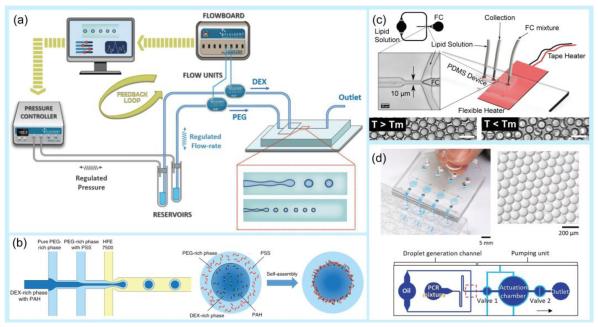The EnzymoGenius™ platform provides researchers with miniaturized high-throughput enzyme assay development services. Specifically, we can utilize technologies such as microplate assays or droplet microfluidics to achieve micronized enzyme assays that allow screening of a large number of compounds or samples in a single assay. In short, we can develop miniaturized high-throughput screening methods for enzymes based on customized needs.
Overview
In the field of in vitro synthetic biology, it is a critically important step to construct efficient artificial biocatalytic systems. This biocatalytic system is designed for the targeted evolution of enzymes to obtain enzymes with desirable functions. However, during enzyme screening, traditional 96-well plates are often unable to detect and screen enzymes due to their low abundance. To effectively solve this issue, our EnzymoGenius™ platform enables the development of microtiter plates, droplet microfluidics, and other high-throughput assays for enzyme screening to help researchers conduct relevant studies.
 Fig. 1 Examples of droplet generation techniques. (Trinh TND, et al., 2023)
Fig. 1 Examples of droplet generation techniques. (Trinh TND, et al., 2023)
Our Services
The EnzymoGenius™ platform provides miniaturized high-throughput enzyme screening services for researchers.
- Microtiter Plates
As a traditional enzyme activity assay, the microplate assay remains one of the fundamental methods for high-throughput enzyme activity determination and screening, and the EnzymoGenius™ platform allows the development of high-throughput analytical methods based on UV-visible absorbance (UV-Vis) and fluorescence (fluorescence) assays that combine these two highly sensitive methods with the microplate assay for micro-assay detection of enzyme activity.
- Droplet-based Microfluidic
With the rapid development of microfluidic technology in recent years, droplet-based microfluidics provides a new pathway for targeted enzyme evolution as well as high-throughput screening of target enzymes. Droplet-based microfluidics provides a solution for high-throughput screening of enzyme evolution. The EnzymoGenius™ platform provides this droplet-based microfluidics technology for customized development of high-throughput enzyme rapid screening and identification services.
Our Advantages
- Small Sample Requirements
Our microplate assay and droplet microfluidics technology allows for the partitioning of reactants into very small volumes, requiring smaller samples, higher sensitivity and shorter detection times than standard assays.
- Increased Sample Throughput
By developing a droplet microfluidic device, it is also possible to improve the throughput of enzyme activity screening with the help of AI technology, which greatly increases the throughput of the assay reaction.
- Convenient Testing Methods
Among the many microtiters plate-based enzyme activity assays, colorimetric or fluorescence assays are the most convenient. For some enzymatic reactions, substrate disappearance or product formation can be easily recognized by measuring UV-Vis's absorbance or fluorescence using a plate reader.
- Higher Detection Accuracy
The microplate as well as microfluidic technology platforms that we have developed are in vitro screening methods, which enable the assay to be free of interference from the in vivo environment and improve the accuracy of screening compared to traditional in vivo high-throughput screening techniques by avoiding the complex metabolic network of the in vivo system.
Miniaturized HTP enzyme assay allows screening of a large number of compounds or samples in a single run. Our EnzymoGenius™ platform enables miniaturized high-throughput enzyme assay development, utilizing technologies such as microplate assays or droplet microfluidics to achieve high-throughput screening without compromising assay accuracy. If you are interested in our services, please do not hesitate to contact us.
Reference
- Trinh, TND.; et al. Droplet-Based Microfluidics: Applications in Pharmaceuticals. Pharmaceuticals. 2023, 16(7):937.

































 Fig. 1 Examples of droplet generation techniques. (Trinh TND, et al., 2023)
Fig. 1 Examples of droplet generation techniques. (Trinh TND, et al., 2023)